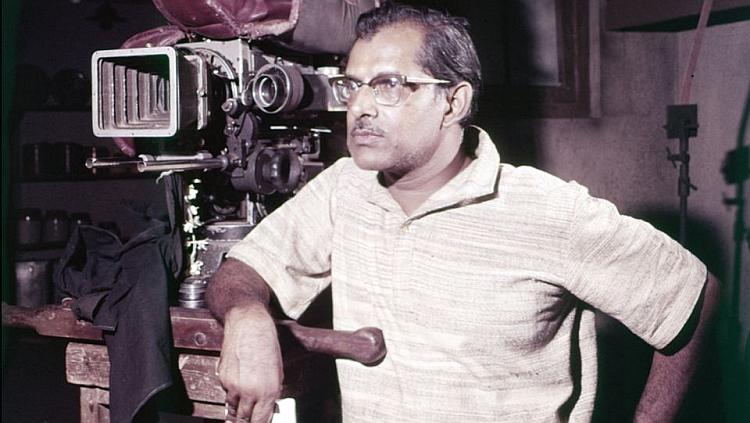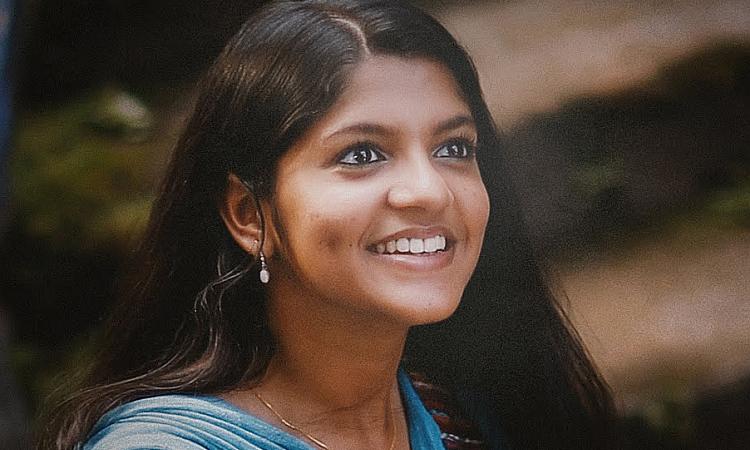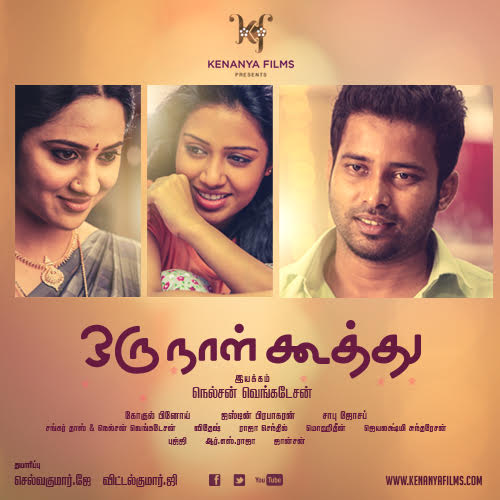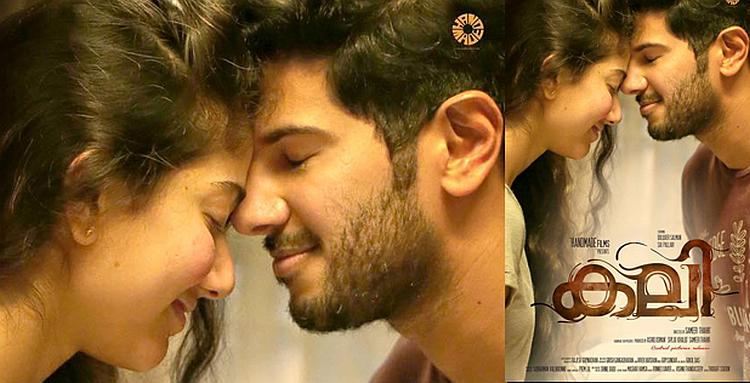{mosimage}It was one of the movies in my wishlist and a long overdue. I knew it was about the kid born out of wedlock and may be because of the Indian cinema's penchant for tearjerkers kept me away from this story. But after hearing wonderful reviews about this movie, when I came across it in veoh.com, I initiated the download. Man... a wonderful movie I had missed all these years. This is a movie I can't keep my attention off while watching. I was even surprised that there was a malayalam version of this movie called 'Olangal' directed by Balu Mahendra, which has this evergreen hit - Thumbi Vaa. However both the movies had drawn their inspiration from Eric Segal's classic novel - Man, Woman and Child. Ananya informed me that it was made in Telugu as "Illalu Priyaralu" and my wife shared her knowledge that Tamil version of this movie had Sivaji Ganesan & Sujatha in lead.
Page 1
The life of DK (Naseeruddin Shah) and Indu (Shabana Azmi) is a bed of roses simply conveyed in one line - Aisa kya musibat hai tumhare jo mera nahin? (Is there any trouble of yours which is not mine?) by Indhu on a blissful moment. When Rahul (Jugal Hansraj), the illegitimate child DK fathered on an one night stannd with Bhavana (Supriya Pathak) enters their life, the shadow the past casts threatens to bring their picture perfect home down. Indhu reluctantly to entertain Rahul for few days before DK arranges a settlement for him. The kids get closer first and slowly slowly Indhu is also drawn towards Rahul, but the glimpse of Rahul as a 'object of trust broken' dissuades her to express her love for him. As usual the movie ends in a positive note.
{mosimage}There are some nice supporting characters in this movie who register their presence when you switch off the movie. One is Tanuja, as Indhu's friend who challenges the institution of marriage when found her home is being poached with the other woman. Second is Supriya Pathak who walks away with our sympathies because of her love for the man who just thought of her as an one night stand partner. And there is Saeed Jaffery as the friend of Naseeruddin Shah who makes the movie lighter than the darkness it deserves to be. Howerever the best of the supporting characters are the kids - Urmila and Aradhana. Such a lovely camraderieship between the kids and playing their age is so wonderful to watch. Ultimately it is the protagonist - Master Jugal Hansraj who steals your heart and you can't resist your heart crying away for him, whenever he faces rejection by Shabana.
The reason why I liked this movie is - its subtley. Even though it had great scope for being melodramatic and loud, Shekar keeps the drama minimal and had concentrated more on the emotions of the characters. The scene in which Naseeruddin Shah tells the truth to Shabana that he had fathered a child, Shabana is at her best display of histrionics. And in the scene Shabana shouts at Jugal for running away from home, as viewer we can easily make out that what is in her lips is totally contrasting of her feelings and subsequently the kid Jugal apologising to Shabana (for everything is implied), I felt like joining Shabana crying out.
And... the kids know that there is a tension at home, but couldn't understand what is going on. Shekar had best used the Jugal's sketch book to display what the kid is undergoing through. These are the scenes with high emotional quotient and handled quite adroitly. Had they gone awry, then the movie would have become a parody. Gulzar, as a screenplay & dialogue writer, keeps the melodrama minimal but effective. No high voltage outbursts, but subtly & implied reactions are there throughout the movie. Only thing I felt was the movie should have been ended on the scene where they all leave the railway station and last shot was not needed.
The title is justified - kids are kids, loving and innocent, no matter how they were fathered. That doesn't mean that the infidelities in a marriage are justified / forgiven. Also many people, especially feminists, will argue that this is a chauvanistic story line where the man gets away with the sin he had committed by breaking the trust of the marriage. Shekar addresses this point through the character played by Tanuja. The point is that sometimes unfortunate situations like this arises and it is upto the partners to work towards keeping the marriage intact. 'Masoom' was a bit cliched in a way that the 'other woman' is dead, but again the point of focus is the child who finds itself in an unfortunate situation. So let us not get into the nitty gritties of the marriage.
Writing this it reminds me a conversation I had with my Anni when the talk veered towards 'Parthaale Paravasam'. I was telling that it was a confused movie where Simran even hated wearing the saree he bought for her after marriage and flungs at him when he mentions it, but how come she accepted his marriage? Anni told that life is not all black and white, and to make a marriage work, you should be learning to forgive. Similarly I also felt 'Sathi Leelavathy' as chauvanistic & regressive where the 'other woman' is reprimanded but the man is easily forgiven.
These movies on the outset looks chauvanistic, but if you notice, the other woman also gets domesticated without the need of hiding the past, but blessed with an understanding spouse. May be because all our movies are from the men's perspective, it is the man always who philanders and reforms. The above mentioned movies ending with the 'other woman' not being killed but married off itself is a good sign of changing times in the movies.
Coming to 'Masoom', when I google for its details, I came to read a claim that it is the remake of Balu Mahendra's "Olangal (malayalam)", but it was never acknowledged in the movie credits nor by the critics. Eventually "Olangal" is "inspired" by the Eric Segal's novel "Man, Woman and Child", so the "Masoom" is also credited to the same source. When I told Ananya to look for the details of "Olangal", she found out that it had "Amol Palelkar, Poornima Jayaram and Ambika" in lead and reading its synopsis she said that she had seen its telugu version "Illalu Priyaralu" with Shoban Babu, Suhasini and Pallavi in lead. My wife told that Sivaji Ganesan's "Anadhaman Kadhali" had the similar storyline.
Urmila Matondkar, who played the elder daughter in this movie, went on the paired romantically with the onscreen brother Jugal Hansraj in the 1990 movie "Aa Gale Lag Jaa" and later stormed the nation as sultry heroine in "Rangeela" while Jugal still languished bearing the cross of sweet choclate boy image. Jugal tried to become romantic hero with "Papa kehte hain" and was even relaunched in "Mohabbatein (2000)" but success eluded him. He even tried his hand in direction with the animation movie "Roadside Romeo (2008)" but rest is history.
{mosimage}There are some nice supporting characters in this movie who register their presence when you switch off the movie. One is Tanuja, as Indhu's friend who challenges the institution of marriage when found her home is being poached with the other woman. Second is Supriya Pathak who walks away with our sympathies because of her love for the man who just thought of her as an one night stand partner. And there is Saeed Jaffery as the friend of Naseeruddin Shah who makes the movie lighter than the darkness it deserves to be. Howerever the best of the supporting characters are the kids - Urmila and Aradhana. Such a lovely camraderieship between the kids and playing their age is so wonderful to watch. Ultimately it is the protagonist - Master Jugal Hansraj who steals your heart and you can't resist your heart crying away for him, whenever he faces rejection by Shabana.
The reason why I liked this movie is - its subtley. Even though it had great scope for being melodramatic and loud, Shekar keeps the drama minimal and had concentrated more on the emotions of the characters. The scene in which Naseeruddin Shah tells the truth to Shabana that he had fathered a child, Shabana is at her best display of histrionics. And in the scene Shabana shouts at Jugal for running away from home, as viewer we can easily make out that what is in her lips is totally contrasting of her feelings and subsequently the kid Jugal apologising to Shabana (for everything is implied), I felt like joining Shabana crying out.
And... the kids know that there is a tension at home, but couldn't understand what is going on. Shekar had best used the Jugal's sketch book to display what the kid is undergoing through. These are the scenes with high emotional quotient and handled quite adroitly. Had they gone awry, then the movie would have become a parody. Gulzar, as a screenplay & dialogue writer, keeps the melodrama minimal but effective. No high voltage outbursts, but subtly & implied reactions are there throughout the movie. Only thing I felt was the movie should have been ended on the scene where they all leave the railway station and last shot was not needed.
The title is justified - kids are kids, loving and innocent, no matter how they were fathered. That doesn't mean that the infidelities in a marriage are justified / forgiven. Also many people, especially feminists, will argue that this is a chauvanistic story line where the man gets away with the sin he had committed by breaking the trust of the marriage. Shekar addresses this point through the character played by Tanuja. The point is that sometimes unfortunate situations like this arises and it is upto the partners to work towards keeping the marriage intact. 'Masoom' was a bit cliched in a way that the 'other woman' is dead, but again the point of focus is the child who finds itself in an unfortunate situation. So let us not get into the nitty gritties of the marriage.
Writing this it reminds me a conversation I had with my Anni when the talk veered towards 'Parthaale Paravasam'. I was telling that it was a confused movie where Simran even hated wearing the saree he bought for her after marriage and flungs at him when he mentions it, but how come she accepted his marriage? Anni told that life is not all black and white, and to make a marriage work, you should be learning to forgive. Similarly I also felt 'Sathi Leelavathy' as chauvanistic & regressive where the 'other woman' is reprimanded but the man is easily forgiven.
These movies on the outset looks chauvanistic, but if you notice, the other woman also gets domesticated without the need of hiding the past, but blessed with an understanding spouse. May be because all our movies are from the men's perspective, it is the man always who philanders and reforms. The above mentioned movies ending with the 'other woman' not being killed but married off itself is a good sign of changing times in the movies.
Coming to 'Masoom', when I google for its details, I came to read a claim that it is the remake of Balu Mahendra's "Olangal (malayalam)", but it was never acknowledged in the movie credits nor by the critics. Eventually "Olangal" is "inspired" by the Eric Segal's novel "Man, Woman and Child", so the "Masoom" is also credited to the same source. When I told Ananya to look for the details of "Olangal", she found out that it had "Amol Palelkar, Poornima Jayaram and Ambika" in lead and reading its synopsis she said that she had seen its telugu version "Illalu Priyaralu" with Shoban Babu, Suhasini and Pallavi in lead. My wife told that Sivaji Ganesan's "Anadhaman Kadhali" had the similar storyline.
Urmila Matondkar, who played the elder daughter in this movie, went on the paired romantically with the onscreen brother Jugal Hansraj in the 1990 movie "Aa Gale Lag Jaa" and later stormed the nation as sultry heroine in "Rangeela" while Jugal still languished bearing the cross of sweet choclate boy image. Jugal tried to become romantic hero with "Papa kehte hain" and was even relaunched in "Mohabbatein (2000)" but success eluded him. He even tried his hand in direction with the animation movie "Roadside Romeo (2008)" but rest is history.












